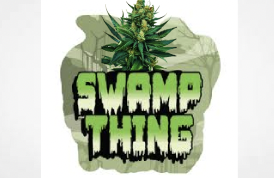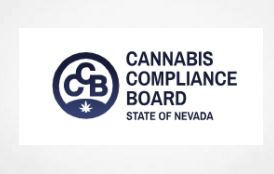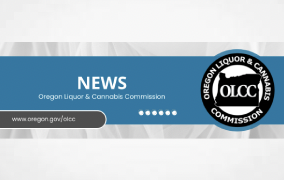As the cannabis industry continues to navigate choppy economic and legal waters into 2024, some cannabis companies are pivoting to the smokable herbs market. And I do not mean to those hemp-derived intoxicating cannabinoids (HDIC) either (which are part of a legally precarious loophole anyway depending on who you ask). The smokable herbs to which cannabis companies and entrepreneurs are turning to are things like wormwood, valerian, tarragon, and mugwort (among others). Of course, these smokable herbs face a different set of legal and compliance issues altogether than hemp and/or cannabis do.
Smokable Herbs and the FDA
The U.S. Food and Drug Administration (FDA) regulates a lot of consumer products in this country, but it namely oversees food of all kinds (including dietary supplements) and drugs (as well as medical devices). It also strictly oversees and regulates tobacco products. Anything not covered by the FDA’s jurisdiction falls outside the scope of the voluminous regulations comprised in the Food, Drug & Cosmetic Act. So where do smokable herbs go? Technically, they are not regulated by the FDA. However, just like any other consumer product, depending on how smokable herbs are marketed, their intended use, and any claims made about their effects on the human body or diseases, the FDA can exert jurisdiction accordingly. And if you’re product contains any tobacco, it’s going to be a tobacco product subject to FDA regulations.
Structure/Function Claims and Disease Claims
Point in case–in 2017, the FDA sent a warning letter to Everything Herbs. Everything Herbs (which still exists) sold herbal extracts like “Art.-C, Black Walnut, Cleavers, Inkberry, Korean Ginseng, Lapacho, Red Clover, and Whole Apricot”. In the warning letter the FDA wrote, “based on the labeling claims on your website, your products are drugs under section 201(g)(1) of the Act [21 U.S.C. § 321(g)(1)] because they are articles intended for use in the diagnosis, cure, mitigation, treatment, or prevention of disease.” Essentially, the FDA got after Everything Herbs for making disease claims about their herbal products such as “helps to provide occasional joint relief after periods of exercise”; “PROPERTIES AND USES: . . . Cancer Disorders and Tumors . . . Epilepsy . . . Seizures”; and “If dissolving a cancer or tumor, 40 to 80 drops two to three times per day”. Ultimately, if you want to keep your smokable herbs outside the purview of the FDA, avoid any structure/function or disease claims, or utilize contextual innuendo or disease-related medical literature in your marketing, about those products in any capacity (or they may otherwise be treated as new and unapproved “drugs”).
Smokable Herbs and the FTC
All “consumer commodities” not otherwise regulated by the FDA are generally governed by the Federal Trade Commission (FTC) in certain respects. In particular, these consumer commodities must be labeled with principal display panels containing: 1) the identity of the commodity; 2) the name and place of business of the product’s manufacturer, packer, or distributor; and 3) net contents. And for smokable herbs, you’ll also want to make clear on your labels and in all your marketing that these are not tobacco products.
Identity of the commodity means: “1) The name now or hereafter specified in or required by any applicable Federal law or regulation; or in the absence thereof, 2) The common or usual name of the commodity; or in the absence thereof, 3) The generic name or in other appropriately descriptive terms such as a specification which includes a statement of function.”
Regarding name and place of the business, where the consumer commodity is not manufactured by the person whose name appears on the label, the name has to be qualified by a phrase that reveals the connection such person has with such commodity, such as “Manufactured for ______,” “Distributed by ______,” or any other wording that expresses the facts. Further, actual corporate names have to be used (which can be followed by fictitious business names). The statement of the place of business also has to include the maker’s street address, city, state, and zip code. However, the street address may be omitted if it is listed in a readily accessible, widely published, and publicly available resource, including but not limited to a printed directory, electronic database, or website.
When it comes to listing ingredients on the label, ingredients or components “which are not present in the commodity in a substantial or significantly effective amount” can’t be mentioned in the specification of identity. However, a component present in a formulation “in substantial and effective amounts, but not present in the final product due to conversion or transformation into a different entity (which different entity is present in the final product)” may be mentioned in the specification of identity.
Concerning net quantity of contents, it has to be its own distinct item on the principal display panel, and it has to be expressed in terms of weight or mass, measure, numerical count, or a combination of numerical count and weight or mass, size, or measure. So, whether the product is packed as a loose herb, plugs for vaping, or in another form also matters for the net contents declaration (including whether servings are involved).
Beware Smoking Cessation
Assuming that you don’t: 1) turn your smokable herbs into new and unapproved drugs by making unsubstantiated structure/function or disease claims; 2) have your smokable herb products deemed tobacco products; or 3) mess up the FTC labeling requirements, the other area to be aware of in this arena is smoking cessation. It’s somewhat commonly promoted with these types of products that, if you’re trying to quit tobacco, smokable herbs will help you get there. If you promote, label, or market your product as a smoking cessation product, we’re back to the realm of the FDA. Per the FDA’s regulatory preamble around smoking cessation therapies and products, “FDA considers claims about smoking cessation to be more than simply ‘consumer-oriented marketing statements.’ . . . claims related to smoking cessation have long been recognized as evidence of intended use, conferring drug or device jurisdiction, and smoking cessation claims also have long been associated with the intended uses of curing or treating nicotine addiction and its symptoms.”
False and Misleading Advertising
The FTC could also take exception to any advertising claims made around the safety of using smokable herbs over tobacco. See, for instance, the 2000 case of In the Matter of Alternative Cigarettes, Inc., et al. In that matter, Alternative Cigarettes sold non-tobacco herbal cigarettes (among other things), advertising that the cigarettes were “pure”, “100% nicotine free”, that the cigarettes were made “from a special blend of smoking herbs”, and that they were free from additives. In the consent order, the FTC defined the term “herbal smoking products” as “cigarettes, cigars, cigarillos, little cigars and any other product made or derived from plant material other than tobacco, that is intended for human smoking, including any component, part, or accessory of an herbal smoking product.” Alternative Cigarettes got popped by the FTC because Alternative Cigarettes represented that these herbal smoking products were less hazardous to a smoker’s health than smoking cigarettes containing additives, chemicals, tobacco, etc. The FTC found that these herbal smoking products do pose “many of the health risks associated with smoking tobacco cigarettes,” including that the smoke from these products contains numerous carcinogens, toxins, etc., and that the “safer alternative” and “purity” advertising was, therefore, false and misleading.
The Takeaway for Smokable Herbs
The smokable herbs market is attractive as an adjacent partner to the cannabis industry. Mainly because these herbs and herbal blends do not violate federal law like cannabis does, and they don’t live in the legal penumbra that HDICs do (for now). However, they face a different set of legal issues between the FDA and the FTC, which means that smokable herb companies need to be on their toes when it comes to claims, advertising, and compliance. If you’re already in this space, be sure to do scheduled audits and analyses of your website, marketing materials, social media marketing, and product labels and packaging. And if you’re looking to get in, develop your compliance plan now around avoiding FDA scrutiny and complying with FTC requirements for labeling and advertising.
[View source.]
Source:https://www.jdsupra.com/legalnews/a-cannabis-pivot-to-smokable-herbs-4401395/



















